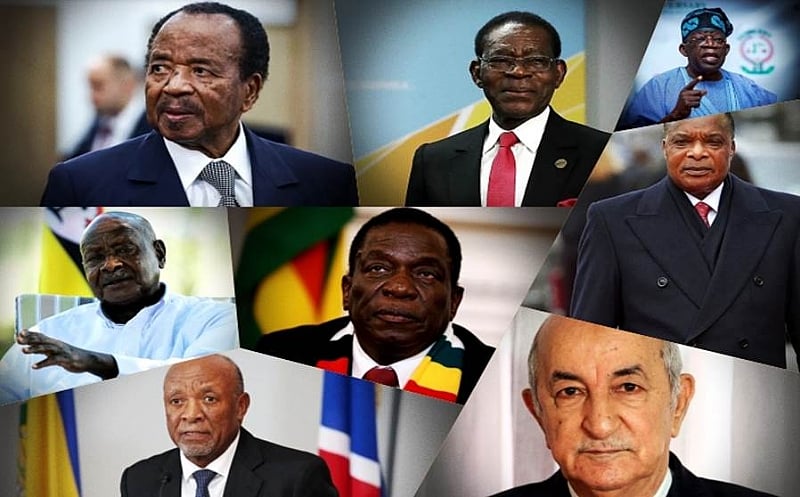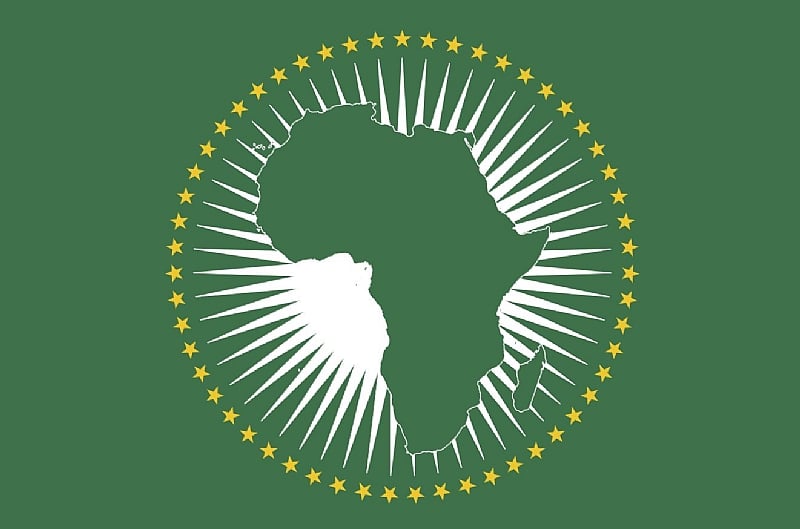It has become an almost predictable rhythm in many African political speeches, panel discussions, and media narratives that whenever a country is struggling with economic collapse, political disunity, ethnic conflict, corruption, or poor infrastructure, a finger is pointed at the former colonial master – usually Britain, France, or Belgium. The refrain is familiar: colonialism sowed the seeds of disunity, crippled Africa’s traditional systems, looted the continent’s resources, and left behind artificial borders. These are all valid historical facts. But they are not the excuses for the state of African nations today, more than six decades after most of them gained self rule.
Indeed, countries like Nigeria, Ghana, Kenya, Uganda, Zimbabwe, Malawi, Sierra Leone, South Sudan, Sudan, The Gambia, Zambia, Tanzania, Botswana, Lesotho, Eswatini, and Cameroon in part, all inherited the British colonial structure and have, in different degrees, blamed Britain for the challenges they face today. Similarly, Francophone countries like Senegal, Côte d’Ivoire, Mali, Niger, Burkina Faso, Chad, Central African Republic, Togo, Benin, Guinea, and the Democratic Republic of the Congo often lay their woes at the feet of France. Even Portuguese and Belgian colonies like, Mozambique, Angola and Rwanda have played the same blame game.
The point to consider is that Africa’s obsession with its colonial past is no longer only unproductive, it is now dangerously counterproductive. Historical memory is vital for any society, but when history becomes a scapegoat for modern failure, the result is not progress but stagnation. Africa must now wake up to the reality that its destiny lies in its own hands. The path forward begins with rejecting the temptation to pass the buck and instead embrace responsibility, introspection, and accountability.
Let us take British history as a case study. Before the British Empire ever thought of colonising Africa, Britain itself was a Roman colony. Beginning in 43 AD under Emperor Claudius, the Romans ruled what is now England and parts of Wales for nearly 400 years. They imposed their military system, language (Latin), roads, taxation, religion, and imperial authority on the native Britons. Their occupation was not always benign. Native Celtic culture was suppressed, tribal rebellions were brutally put down, and Roman governors ruled with impunity. Yet, Britain did not wallow in victimhood long after the Roman legions withdrew in 410 AD. Instead, over the centuries, the people of the British Isles reorganised themselves, developed their own governance systems, built one of the strongest legal traditions in the world, birthed the Industrial Revolution, and eventually became a global superpower. They did this not by blaming Rome, but by moving forward with what they had inherited, roads, urban settlements, trade routes and transforming them to suit their national vision. The moral lesson here is clear: colonisation, for all its evils, does not permanently doom a people unless they allow it to.
What many African leaders and thinkers fail to acknowledge is that the persistent issues facing the continent are now largely home-grown. Corruption, nepotism, electoral fraud, tribalism, kleptocracy, weak democratic institutions, and the refusal to build consensus or deliver justice: these deficiencies were not imposed from London, Paris, or Lisbon. They were nurtured in African capitals, legislatures, palaces, and boardrooms. The former colonisers may have created certain fault lines, but it is African leaders and elites who have, time and again, failed to bridge them. Nigeria is a prime example.
Despite its immense oil wealth and large, educated population, the country has been brought to its knees repeatedly by corruption scandals, insurgencies, ethnic tensions, and poor leadership. Every administration has blamed the colonial structure left behind in 1960. But how long does a sovereign nation continue to function like a child whose only excuse is parental abuse? Sixty-five years is more than enough time to chart a new course. Singapore, which gained full independence just five years after Nigeria, has become a beacon of prosperity, not because it avoided colonisation as it was a British colony, but because it embraced discipline, visionary leadership and civic responsibility.
In Zimbabwe, Robert Mugabe’s land reform policies were said to be a response to colonial injustices. While it is true that white settlers grabbed huge swaths of land during colonial rule, Mugabe’s execution of their redistribution was riddled with political patronage and violence, resulting in agricultural collapse and economic disaster. The blame for that failure cannot, in all fairness, be placed on Britain. In South Sudan, the newest nation on the African map, internal ethnic strife between the Dinka and Nuer populations has led to devastating civil wars and humanitarian crises. It is hard to point to British colonialism which ended there in 1956 as the cause of ongoing tribal killings in 2025. The people and their leaders must take responsibility for their peace or lack of it.
Let us look at governance. Why do many African parliaments spend more money on allowances than on legislative productivity? Why do budgets disappear with no consequences? Why are health ministers flying to Europe for check-ups while their citizens die in poorly equipped hospitals? Why are opposition voices crushed under autocratic regimes with impunity, even as the same leaders parade themselves as defenders of democracy? The answer lies in institutional decay. African elites have perfected the art of using state institutions for personal gain rather than public service. This is not a colonial script, it is an African betrayal. The judiciary, which should be the guardian of justice, is often compromised. The police, supposed to protect the people, frequently become tools of repression. Electoral commissions are manipulated. Civil service appointments are made based on tribal affiliation, not merit. Infrastructure projects are budgeted for, but never completed. This systemic failure is not because Britain left. It is because African leaders have refused to grow up.
 Oldest African leaders
Oldest African leaders
French-speaking African nations face a similar trap, often tied to the CFA franc, which many argue keeps these countries economically tethered to France. But while monetary policy is indeed complex, the bigger issue is the refusal of African states to assert fiscal independence by building regional monetary structures or renegotiating terms. It is easier to stage protests against France than to do the hard work of reforming economies, reducing over-reliance on raw material exports, or tackling corruption in tax systems.
Mali, Burkina Faso, and Niger recently made dramatic exits from the Economic Community of West African States (ECOWAS), claiming it was a French puppet. These countries are now governed by military juntas whose record on civil liberties, press freedom, and economic stability is proving authentic. The issue here is not France. It is the growing culture of military sovereignty.
Some African apologists argue that colonialists deliberately designed an education system that trained clerks, not critical thinkers. That may have been true in 1950, but who is in charge of curriculum development today? In Nigeria, Kenya, Uganda, and Ghana, education budgets are among the lowest in the world as a percentage of GDP. Lecturers strike over unpaid salaries. Schools lack chairs, laboratories, and books. The graduates are unemployable. That is not Lord Lugard’s doing. It is the failure of post-independence governments to make education a priority in their countries.
It is easier to blame the West than to be honest with oneself. Yet countries that were colonised have emerged from worse conditions. India was brutally exploited by the British for nearly 200 years. But today, it is a nuclear power, a global IT hub, and the world’s largest democracy. South Korea was colonised by Japan until 1945 and then devastated by war. Today, it is among the top 15 economies in the world. Vietnam, a victim of both colonialism and war, is now one of Southeast Asia’s rising manufacturing hubs. These countries moved forward not by rewriting colonial wrongs in history books, but by writing new chapters of national determination.
Africa cannot build a prosperous future on a foundation of perpetual grievance. The youth of Africa deserve better than recycled colonial narratives. They deserve electricity that works, roads that last, jobs that pay, governments that listen, and elections that count. They don’t care what happened in 1884 at the Berlin Conference. They care about what is happening today in Lagos, Nairobi, Kinshasa, Accra, and Johannesburg.
 In the wake of Niger coup
In the wake of Niger coup
And the only people who can change what is happening today are Africans themselves. Colonialism was a brutal chapter in Africa’s history. It looted, suppressed, divided, and scarred. But it ended. The responsibility to write the next chapter lies with Africans. And blaming yesterday will not build tomorrow. It is time to grow up. Time to lead. Time to stop pointing fingers and start delivering results.
Instead of blame, African leaders must invest in building inclusive institutions. That means merit-based public service, independent judiciaries, robust anti-corruption frameworks, and free media. It also means empowering young people through quality education and healthcare, not propaganda. African countries must trade with each other, not just with Europe or China. Regional integration through bodies like the African Continental Free Trade Area (AfCFTA) must move from paper to practice.
Most importantly, African leaders must understand that leadership is service, not an opportunity for personal enrichment. Until that ethos is embraced, the continent will remain stuck in a cycle of false starts and failed states, regardless of what the colonialists did. The time has come for the continent to break the mirror of blame and pick up the hammer of reconstruction.


